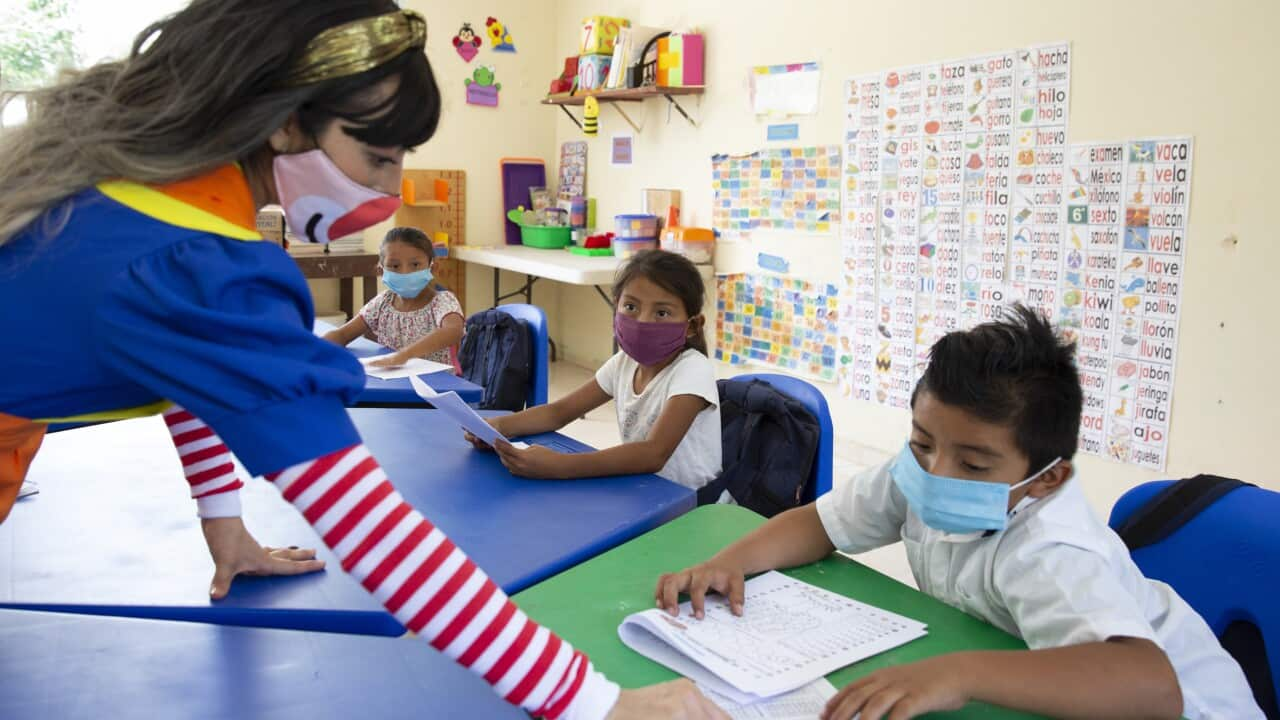Key Points
- COVID infections are rising globally, as the highly infectious JN.1 strain spreads throughout communities.
- Cases in Australia are thought to be much higher than those reported, due to low testing rates.
- Experts are urging people to stay vaccinated and exercise caution while socialising during the festive season.
For the third New Year’s in a row, Australia is in the grips of a COVID wave – the country’s eighth to date – with more than 1,400 fresh cases reported nationally over the past week.
The uptick has been taking shape for months, as infections, hospitalisations, and deaths have steadily risen. It also reflects worldwide trends.
Globally, 850 000 new cases were reported during the 28-day period of 20 November to 17 December 2023, according to the World Health Organization (WHO). That is a 52 percent increase compared to the previous 28-day period.
As WHO’s latest "variant of interest" the JN.1 strain, continues to spread throughout the community, and with the festive season well underway, experts are urging people to take precautionary measures and prepare for case numbers to further increase.
What is the JN.1 strain?
JN.1 is closely related to BA.2.86, informally called "Pirola", a fellow Omicron variant that .
The two variants are nearly identical, according to the US Centres for Disease Control and Prevention (CDC), except for a single difference in their spike proteins, the part of the virus that allows it to invade human cells.
WHO classified the JN.1 coronavirus strain as a on December 19, while noting that, according to available evidence, the strain’s risk to public health was low. Current vaccines and tests are sufficient to detect and prevent transmission of the variant, it said.
JN.1 is, however, extremely efficient at spreading, having proliferated across 41 countries in the space of just two months. The fact that it is responsible for a growing portion of infections suggests it is either more contagious than previous strains, or better at getting past our bodies’ immune defences, according to the Centers for Disease Control and Prevention (CDC) in the US.
How widespread is it?
JN.1 is now the most common strain of COVID-19 spreading across the US, accounting for 44 percent of cases nationwide by mid-December, according to CDC data – a jump of about 7 percent compared to late November. Canada, France, Singapore, and the United Kingdom also have a high number of cases.
The CDC also pointed out, however, that COVID-19 tends to peak around the new year, and winter conditions in the northern hemisphere could also be fuelling the spike.
While reported infections in Australia are climbing, some experts have suggested that due to low testing rates this is likely a mere fraction of the total amount of cases in the community.
"Our numbers would be much more than what is reported … not enough testing is happening, but case numbers are definitely increasing," Curtin University professor of public health Jaya Dantas told the Australian Financial Review.
"There will also be an increase in COVID in the period post-Christmas and New Year’s just because we’ve been gathering, so we need to take small precautions."
How should you prepare?
Vaccination remains our most important defence against COVID, according to experts, and WHO has said that current vaccines will continue to protect against severe disease and death from JN.1 and other circulating variants of the virus.
Australia’s national vaccine advisory body, ATAGI, said with "a recent increase in COVID-19 cases across Australia since November 2023" it is all those who have not yet had their recommended to do so. The most at-risk groups include adults aged 75 years and over and also adults who are severely immunocompromised.
Experts also advised people to hold COVID-safe gatherings during the New Year period.
"Try to hold social events outdoors, where the wind will disperse virus particles, and sunlight will destroy them," Professor Adrian Esterman, chair of Biostatistics and Epidemiology at the University of South Australia told SBS News.
"If you are holding indoor gatherings, try to have some windows and doors open to get a breeze through the house. Air purifiers with a HEPA filter are not that expensive and do a good job at trapping virus particles."












